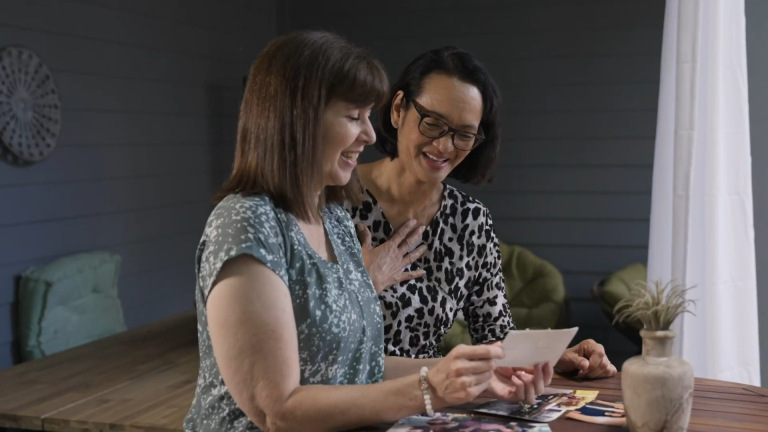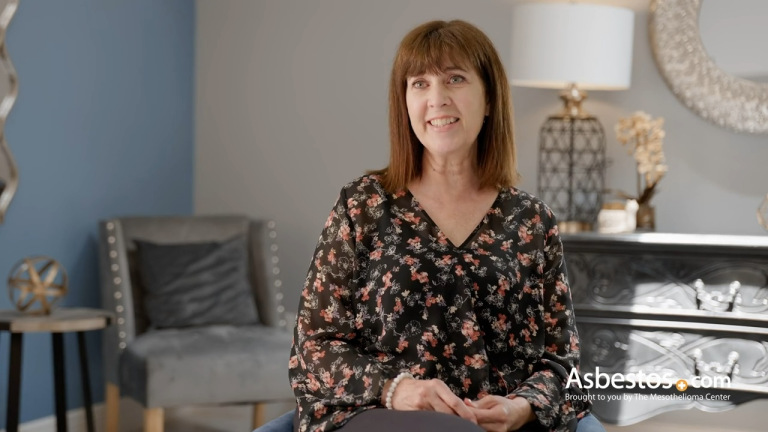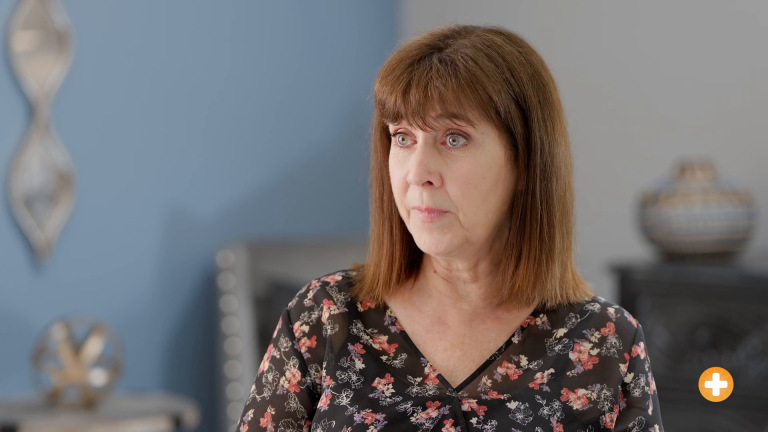Patient-Caregiver Relationships
Written by Karen Selby, RN
Patient Concerns

Patient Concern #1: I Feel Like I’m a Burden
If you feel like a burden to your caregiver, the first thing to know is that you are not alone. One study of those with chronic pain found that 70% reported “clinically elevated levels” of self-perceived burden, or SPB. The second thing to know is that there is a reason it’s called self-perceived burden: Your sense of SPB does not reflect how your caregiver feels or the objective reality of the situation.
Solution #1: Adjust Your Perspective
The patient-caregiver relationship is not a one-way street in which the caregiver gives and the patient takes. Both participants bring positive and negative to the situation and both are impacted, positively and negatively, by the other’s behaviors, attitudes and needs.
It would be more accurate to think of the “burden” of care as a workload that’s shared between the patient and their caregiver. Use our downloadable Patient Needs worksheet to make a list of your needs and mark which you can meet independently and which you can meet with help. Consider proactively soliciting a second caregiver’s help or outsourcing help from a third party to lessen your primary caregiver’s load without taking on more than you can handle on your own.
Solution #2: Communicate
As you’re considering the division of labor between yourself and your caregiver, communicate openly with them about your concerns and invite them to take part in the planning process with you. Use our downloadable Caregiver Needs worksheet to have your caregiver lay out their own expectations, such as designated “off-duty” time. Prioritize meeting those needs to show your caretaker that you value their well-being as much as they value yours.
Solution #3: Look at the Bigger Picture
Finally, remember that the goal of life is not to avoid being a burden, it’s to embrace the experience of carrying others’ burdens and allowing them to carry yours. Consider what bioethicist Gilbert Meilaender said in his essay, “I Want to Burden My Loved Ones”:
“Is this not in large measure what it means to belong to a family: to burden each other – and to find, almost miraculously, that others are willing, even happy, to carry such burdens? Families would not have the significance they do for us if they did not, in fact, give us a claim upon each other.”
Patient Concern #2: I’m Embarrassed
Another unpleasant but common emotion that comes with receiving care is embarrassment, either about being dependent on another person or about needing help with certain personal hygiene tasks. You may not think of cancer as a physical disability, but the symptoms that accompany many cancers and their treatments – like fatigue, nausea and pain – can make it unsafe to do things you’re used to doing on your own.
Luckily, professional caregivers have shared plenty of wisdom about how to alleviate these feelings of discomfort so you can become comfortable with receiving care.
Solution #1: Communicate Your Needs
Be sure to communicate specifically what help you need, and with which tasks. Consider making modifications to your daily routine that will make it possible for you to continue handling certain things independently.
For example, a mesothelioma patient may have trouble showering safely due to the potential for steam to irritate the lungs and cause a dangerous coughing fit. That doesn’t necessarily mean the patient needs their caregiver to wash them. You might consider showering seated in a chair or asking for help only with specific parts of the body that are more difficult for you.
In many cases, caregivers are involved in their patients’ hygiene process primarily to prevent a fall, not to take over the patient’s personal care in full.
Solution #2: Communicate Your Feelings
As you’re communicating your needs, don’t hesitate to directly broach the topic of your discomfort with the situation. Expressing your concerns to your caregiver and discussing the situation will not only alleviate tension, it will also provide an opportunity for you to strengthen your bond.
Say, for example, you admit being nervous or uncomfortable about showering with another person’s assistance. Your caregiver will almost certainly be able to relate, and you can share some laughs about awkward locker room experiences or other embarrassing stories to break the ice and get comfortable in each other’s company.
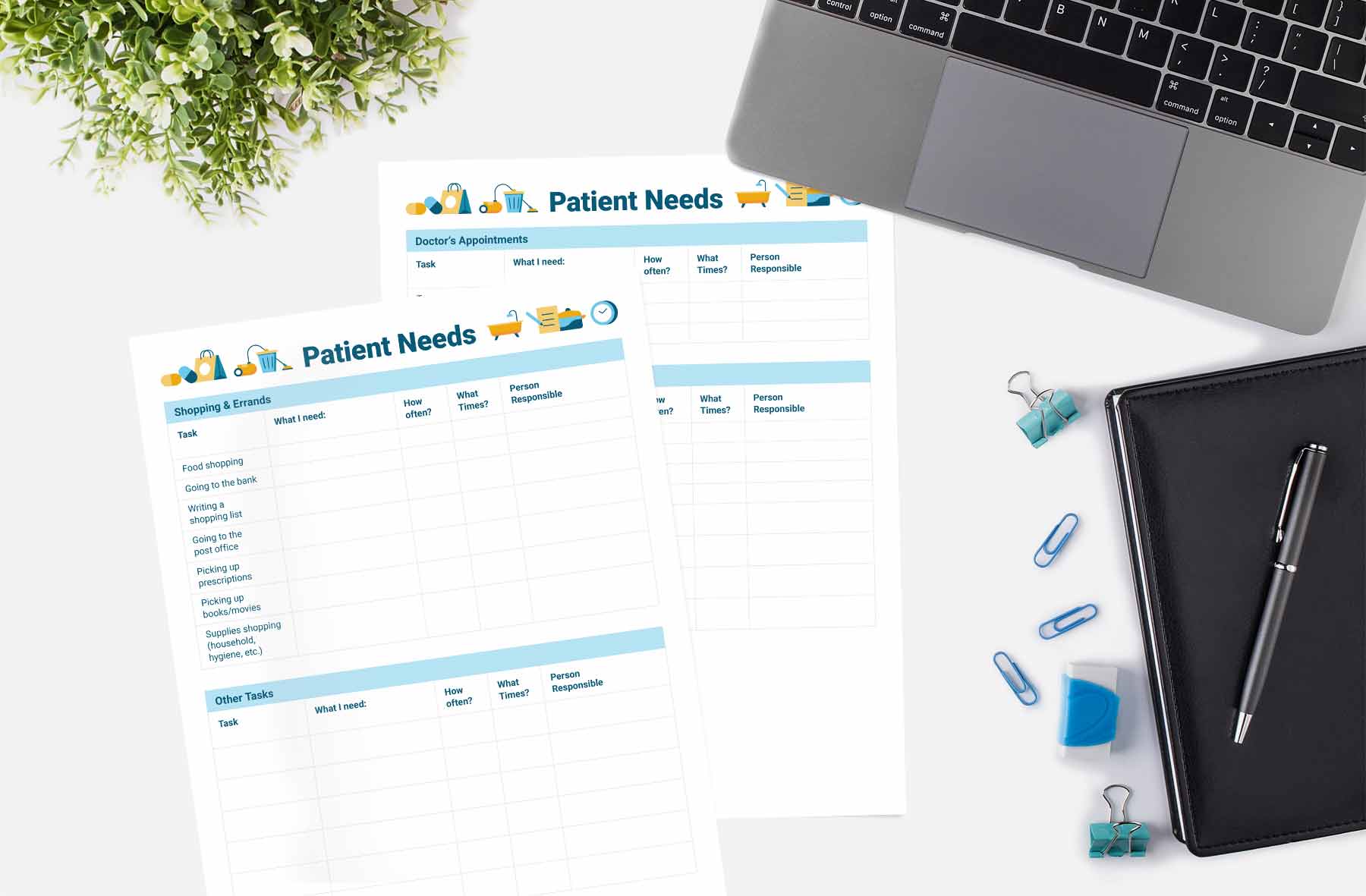
Patient Concern #3: I Feel Helpless
It’s completely normal to struggle to cope emotionally with a chronic illness such as cancer. In fact, the psychological process of adjusting to a serious diagnosis comes in stages, much like grief: You’ll likely experience shock, denial and anger or depression before you arrive at acceptance.
Solution #1: Move Through It
Feeling helpless or “less than” when someone in your life becomes your caregiver is a natural emotion, but an impermanent one. The key to moving through your feelings of helplessness is to remember that you’re not powerless. You may not be capable of the same things you once were, but having different strengths is not the same as having none at all. Give yourself permission to experience your feelings, but don’t allow them to become permanent guests.
Solution #2: Separate Feelings from Facts
A key tenet of cognitive behavioral therapy is the understanding that your feelings about a situation and the reality of it can be different things. Are you actually helpless, or are you just unable to do certain things you once did? Adjusting your mindset will allow you to grieve the loss of old capabilities and move on to embrace new ones rather than remaining motionless in your despair.
Solution #3: Develop New Skill Sets
Say, for instance, that prior to your cancer diagnosis you used to be the one who did the grocery shopping, but you can no longer keep up with the task since you’ve started chemotherapy. Swap tasks with your caregiver so that you take on the mental labor of organizing the shopping list while they do the physical pickup. Capitalize on what you’re able to do and you’ll find yourself focusing less on what you’re not.
Caregiver Concerns

Caregiver Concern #1: I’m Always “On Duty”
If you live with the person you care for, one aspect of your relationship that may contribute to burnout is a lack of clear boundaries around when you’re “on” or “off” duty. Just like people who work from home need a clear boundary between work time and personal time, caregivers need time to relax and decompress with the knowledge that nothing will be needed of them.
Solution #1: Ask for Help
Try getting someone else to take over for you a few days a week so you can spend time by yourself or with friends. Even if you don’t leave the house, handing the reins to someone else for a while can go a long way toward helping you de-stress.
Solution #2: Create Good Boundaries
Another way to give yourself more “off” time is to create a schedule with the person you care for and work to get all of your routine tasks done before a certain time each day. Then, you can even enjoy relaxing together.
Caregiver Concern #2: I Don’t Know What They Need
People who need care but are reluctant to ask for it often do so out of a desire to avoid burdening the people around them. What they don’t realize is that for caregivers, the stress of guessing what they need and worrying whether their needs are met is far more challenging than simply providing requested help.
Solution #1: Communicate Your Needs
You don’t want your patient to force you to guess their needs, so don’t make them guess your needs, either. Sit down with the patient and express your need for clear, proactive communication of their needs and expectations. Explain that the uncertainty of not knowing what is necessary is more stressful than simply providing help that’s requested. Many patients don’t realize that asking for assistance is more of a help to you than a hindrance.
Solution #2: Create a Plan
Cancer patients often experience serious fatigue, which can make it more difficult for them to articulate their needs correctly in the moment. It’s helpful to switch your approach and draw up a schedule of the patient’s recurring needs that arise on a daily, weekly and monthly basis. You’ll feel more informed and prepared, and your loved one won’t feel like they’re asking for help quite so often.
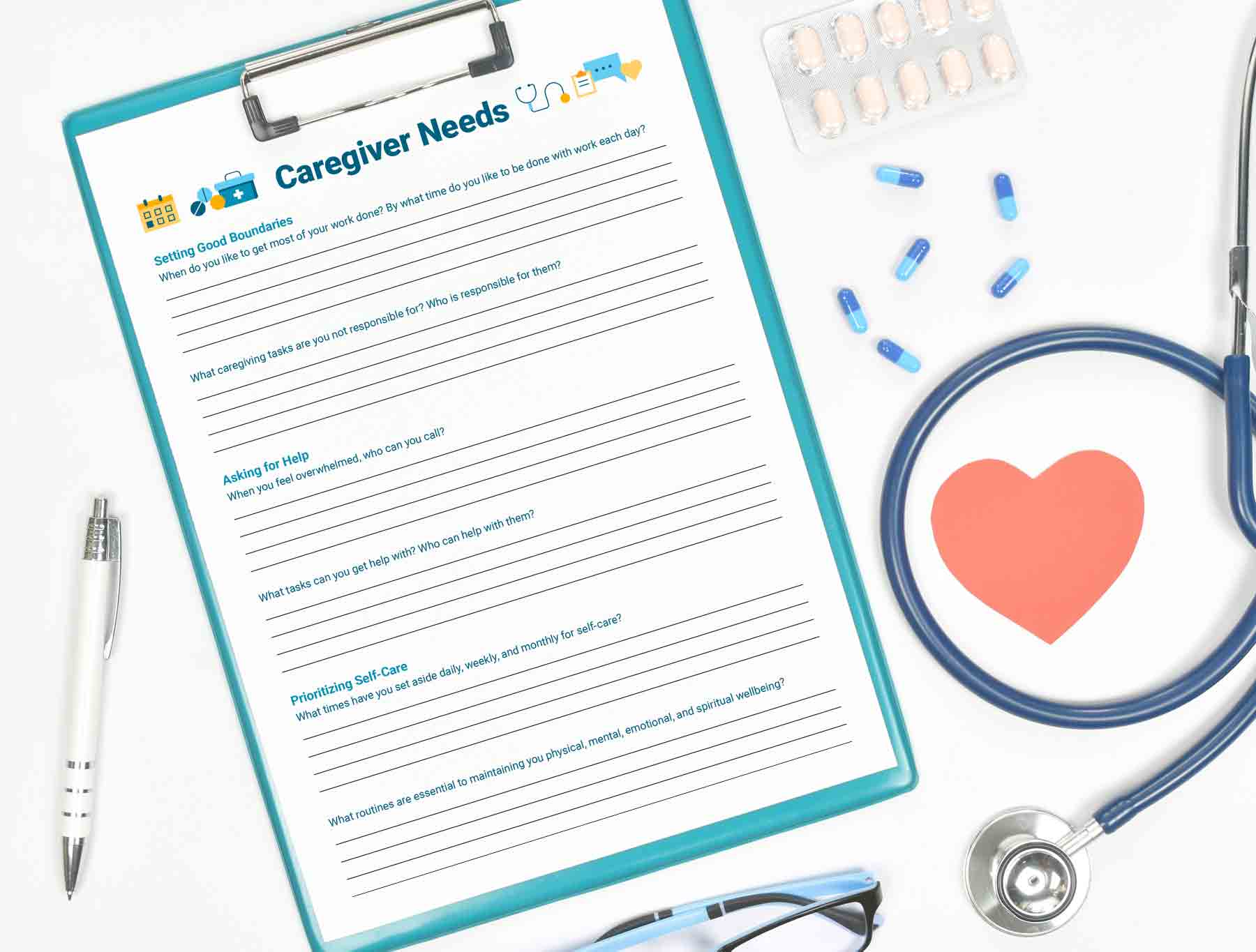
Caregiver Concern #3: I’m Growing Resentful
Usually, resentment in a patient-caregiver relationship is a sign that one or more problems have been allowed to go unaddressed and have snowballed into a larger issue as a result. This is why it’s always best to address problems or potential problems as soon as they appear.
If you feel yourself beginning to harbor resentment toward your patient, it’s your responsibility to examine that feeling and figure out what’s causing it. Do you feel disrespected? Taken for granted? Figuring out why you’re harboring resentment is the only way to resolve it.
Solution #1: Ask for More Help
Caregivers often struggle to ask for the help they need because they see themselves exclusively as providers.
Get other members of your family and your patient’s family involved in the division of labor to help lighten your workload. Can someone drop off meals once or twice a week? Can someone stay with your patient for an afternoon so you can take time for yourself? Don’t be shy about enlisting help from others – you deserve care just as much as your patient does.
Solution #2: Create Stronger Boundaries
Even if you don’t feel like the actual work of caretaking has become overwhelming, you may find yourself burned out anyway if you’re not drawing clear boundaries around when you’re on or off caretaking duty. If you don’t give yourself formal, clearly delineated downtime, your brain and body can’t truly relax.
Work with your patient and other loved ones in your life to develop a schedule that allows you time to recharge each and every week. Remember that self-care isn’t selfish – no one will benefit if you burn out.
Solution #3: Take a Break
In addition to a few hours or a day of downtime each week, you deserve longer breaks as well.
Even if you don’t have the finances to take a real vacation, work with your family and members of your patient’s family to arrange a full week of time off. Go stay with family or a friend and indulge in staycation treats such as your favorite foods, movies and activities. You may be surprised how restorative a week away can be.
Partner Concerns
One of the most complicated patient-caretaker relationships is that between spouses or romantic partners. Even those with the strongest of bonds can struggle when a partner is diagnosed with cancer. Adjusting a spousal relationship to incorporate a patient-caregiver dynamic is never simple.
Luckily, all you need to navigate the complexities of a chronic illness in a relationship are the same tools required for any healthy relationship: patience, communication and a willingness to roll up your sleeves and make it work.
Partner Concern #1: We’re Exhausted
Time apart is key to maintaining relationship health, but spousal caregiving often requires partners not only to spend more time together, but to interact with each other all day, every day. As a result, burnout can come quickly – even more quickly than it arrives for other family members or professional caregivers.
Solution #1: Make a Schedule
Couples can’t spend 24 hours a day, seven days a week, 365 days a year together without the relationship suffering as a result. Sit down and create a plan that covers the patient’s needs while also allowing each partner time to be independent.
Solution #2: Enlist Help
Depending on how much care the patient requires, you may need to enlist the help of a family member or friend to allow the caregiving partner to step away from their duties and get some alone time.
Even if you’re able to develop a schedule that works without outside assistance, ask for it anyway. You may not strictly need help with a grocery run, but your loved ones are probably happy to do it. The more opportunities you have to lessen your and your partner’s stress, the better.
Partner Concern #2: They See Me Differently
If you’re the patient in the relationship, you may feel that your partner looks at you differently now that you have a chronic illness that impacts your capabilities. While these emotions of self-doubt are natural, they can drive a wedge between you if not addressed properly.
Solution #1: Consider Couples Therapy
Couples therapy is a great idea for any couple, no matter what they’re going through, but especially when you and your partner are coping with the complexities of a chronic illness. Having a professional there to help you see things objectively can be a godsend.
Even if you’re not ready to discuss your deeper feelings, couples therapy can help prevent simple misunderstandings or relationship hiccups from becoming larger issues. This is essential for couples who are already using the lion’s share of their energy to cope with an illness.
Solution #2: Create Opportunities for Couples-Only Time
Once you and your partner have created a schedule that allows you to have some time apart, dedicate additional time to doing things you both enjoy together. Though cancer may somewhat affect the activities you can participate in, a little creativity can open up plenty of options for you and your beau. Watching movies you saw together when you first started dating or playing games you’ve always loved will give you an opportunity to spend time as a couple, not as patient and caregiver.
Above All, Communication Is Key
No matter what type of patient-caregiver relationship you have or what challenges you face, the best solution to solving any problem is proactive, clear communication. When both patient and caregiver feel comfortable expressing their needs, they can avoid misunderstandings, prevent burnout and lay the groundwork for a long and happy caregiving relationship.

